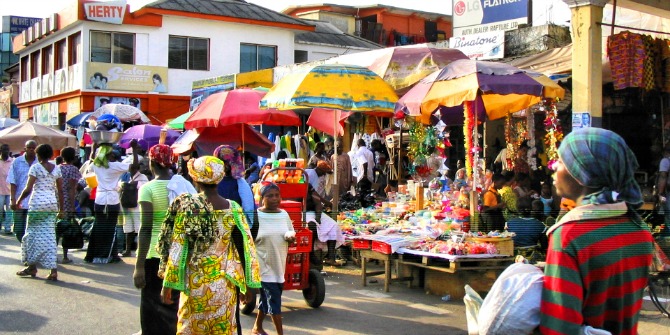Ghana is expected to record slow growth in economic activities in 2023 as the Government tightens expenditure amid reduction in revenue targets and missing macroeconomic performance for 2022.
Presenting the “NKABOM” (Unity) budget to Parliament on Thursday, Mr Ken Ofori-Atta, announced that the country’s projected monetary value of final goods and services for 2023 would be 2.8 per cent.
This is a decline in growth in economic activities, compared with the revised overall real Gross Domestic Product (GDP) of growth of 3.7 percent for 2022 and the initial growth target of 5.8 per cent.
The Government said it was expecting a total Revenue and Grants of GHS96,842 million (16.4 per cent of GDP) in 2022, down from the 2022 budget target of GHS100,517 million (20.0 per cent of GDP) being 3.7 per cent reduction.
It also revised total Expenditure (including payments for the clearance of arrears) downwards to GH¢135,742 million (22.9 per cent of GDP) from the original budget projection of GH¢137,529 million (27.4 per cent of GDP).
Meanwhile, the interest on Government’s borrowing increased from GHS37,447 million (7.5 per cent of GDP) to GHS41,362 million (7.0 per cent of revised GDP), mainly on account of inflationary pressures and exchange rate depreciation resulting in higher cost of financing.
The largest spender in the Ghanaian economy – the Government, also announced several policy measures to reduce expenditure as it readies to implement the International Monetary Fund (IMF) loan support programme.
The IMF loan support programme is aimed at restoring macroeconomic confidence and make the economy resilient to alleviate the plight of Ghanaians amid the current economic hardship.
Among others, the Government said there would be a freeze on new tax waivers for foreign companies and review of tax exemptions for free zone, mining, oil and gas companies in 2023.
There would also be a freeze on the hiring of civil and public servants, in addition to reduction of expenditure on appointments, salary freezes and suspension of allowances on housing, utilities, and clothing.
Metropolitan, Municipal and District Assemblies (MMDAs), Ministries, Departments and Agencies (MDAs) and State-Owned Enterprises (SOEs) have also been directed to reduce fuel allocation to political appointees and their Heads by 50 per cent.
In the first half of 2022, the Services sector led growth in the economy by contributing an average share of 46.2 per cent, with the Agriculture sector recording 21.7 per cent, and Industry sector contributing 32.1 per cent.
This trajectory is expected to continue in 2023, with the Services sector projected to grow by 46.6 per cent, industry – 33.4 per cent, and Agriculture – 20 per cent.
Meanwhile, for an economic structure like Ghana, it is expected that agric and industry will lead the economic growth through increased agricultural production and industrial activities, before transitioning to the services sector.
While all these show that Ghana’s economy will record a slow growth in 2023, Mr Ofori-Atta said the Government was determined and had resolved to confront the current daunting economic challenges facing the nation head-on and reset the economy.
He said: “In the immediate term, we will work towards securing an agreement with the International Monetary Fund, execute the debt exchange programme, improve the management of foreign exchange, and support our local productive capacity for food security.”
The budget, the Finance said, would focus on Government’s resolve to structurally transform the economy through aggressive domestic revenue mobilisation, boosting local productive capacity and promoting a diversified and vibrant value-added export sector.
Also, there would be streamlining of expenditures, protection of the poor and vulnerable, expansion of digital and physical infrastructure and the implementation of structural and public sector reforms.
Mr Ofori-Atta, therefore, called for the support of all Ghanaians and said: “This is the time to rebuild, not to destroy and tear down. Let us work together for our collective benefit.”
Latest Stories
-
Syria’s minorities seek security as country charts new future
33 minutes -
Prof. Nana Aba Appiah Amfo re-appointed as Vice-Chancellor of the University of Ghana
40 minutes -
German police probe market attack security and warnings
40 minutes -
Grief and anger in Magdeburg after Christmas market attack
41 minutes -
Baltasar Coin becomes first Ghanaian meme coin to hit DEX Screener at $100K market cap
2 hours -
EC blames re-collation of disputed results on widespread lawlessness by party supporters
2 hours -
Top 20 Ghanaian songs released in 2024
2 hours -
Beating Messi’s Inter Miami to MLS Cup feels amazing – Joseph Paintsil
2 hours -
NDC administration will reverse all ‘last-minute’ gov’t employee promotions – Asiedu Nketiah
3 hours -
Kudus sights ‘authority and kingship’ for elephant stool celebration
3 hours -
We’ll embrace cutting-edge technologies to address emerging healthcare needs – Prof. Antwi-Kusi
3 hours -
Nana Aba Anamoah, Cwesi Oteng special guests for Philip Nai and Friends’ charity event
3 hours -
Environmental protection officers receive training on how to tackle climate change
3 hours -
CLOGSAG vows to resist partisan appointments in Civil, Local Government Service
4 hours -
Peasant Farmers Association welcomes Mahama’s move to rename Agric Ministry
4 hours

